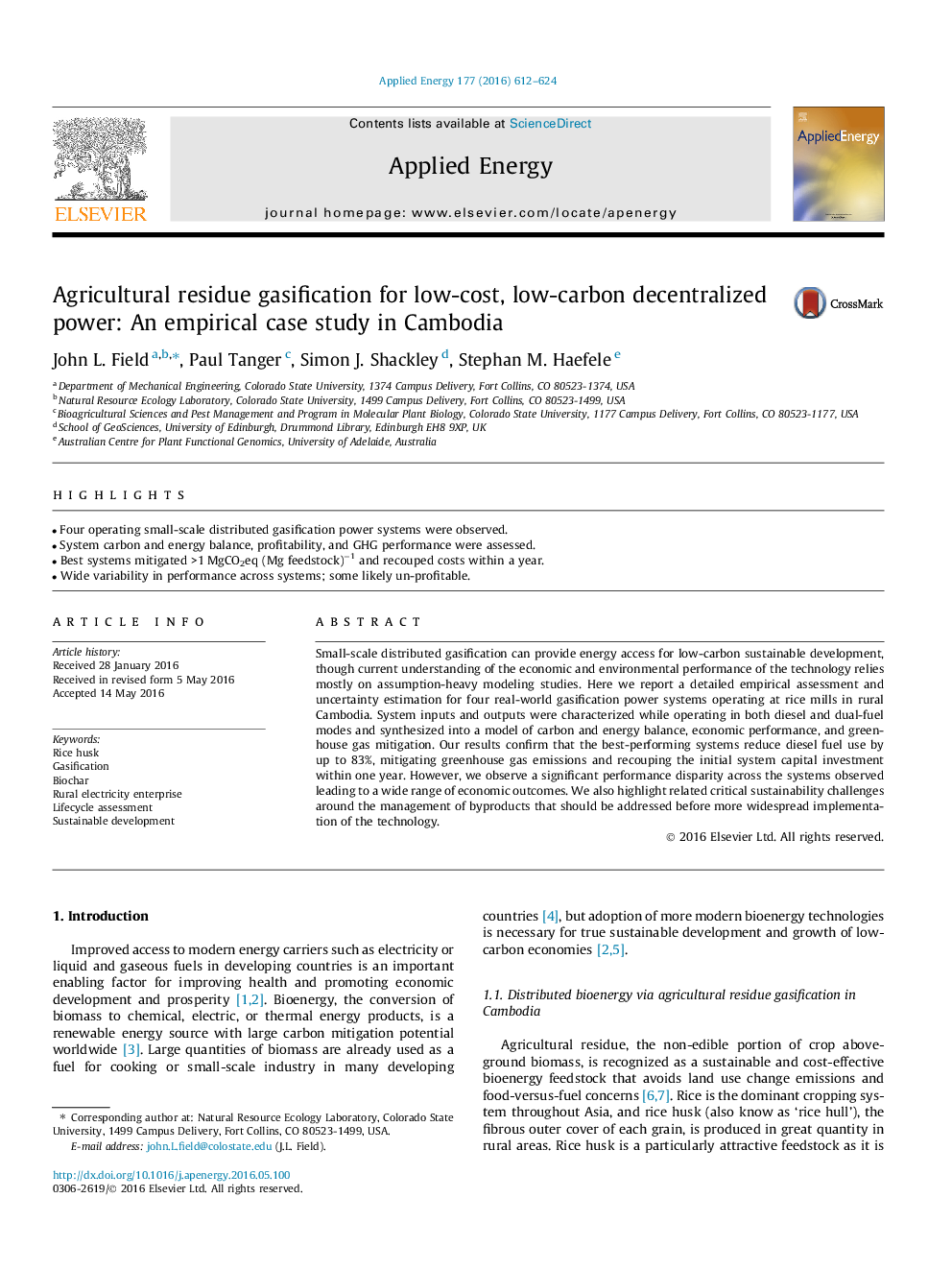| Article ID | Journal | Published Year | Pages | File Type |
|---|---|---|---|---|
| 6682778 | Applied Energy | 2016 | 13 Pages |
Abstract
Small-scale distributed gasification can provide energy access for low-carbon sustainable development, though current understanding of the economic and environmental performance of the technology relies mostly on assumption-heavy modeling studies. Here we report a detailed empirical assessment and uncertainty estimation for four real-world gasification power systems operating at rice mills in rural Cambodia. System inputs and outputs were characterized while operating in both diesel and dual-fuel modes and synthesized into a model of carbon and energy balance, economic performance, and greenhouse gas mitigation. Our results confirm that the best-performing systems reduce diesel fuel use by up to 83%, mitigating greenhouse gas emissions and recouping the initial system capital investment within one year. However, we observe a significant performance disparity across the systems observed leading to a wide range of economic outcomes. We also highlight related critical sustainability challenges around the management of byproducts that should be addressed before more widespread implementation of the technology.
Related Topics
Physical Sciences and Engineering
Energy
Energy Engineering and Power Technology
Authors
John L. Field, Paul Tanger, Simon J. Shackley, Stephan M. Haefele,
